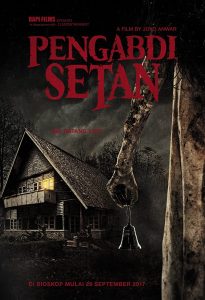 Today I learned that Indonesian horror cinema, much like the local version, sometimes goes back to the well. Because it turns out that Satan’s Slaves is a remake of the same title in Indonesian (although Satan’s Slave, singular, in English), made in 1982. I haven’t seen that one, but the IMDB summary makes it clear they’re related.
Today I learned that Indonesian horror cinema, much like the local version, sometimes goes back to the well. Because it turns out that Satan’s Slaves is a remake of the same title in Indonesian (although Satan’s Slave, singular, in English), made in 1982. I haven’t seen that one, but the IMDB summary makes it clear they’re related.
Anyhow, this version starts with the quiet grief of a family whose once-famous singer matriarch is withering away from a mysterious illness. Not only are they losing their mother (or, in one case, wife), but they’re also losing the things they own and quite possibly their house, in paying for her care. I guess mostly the medicines and old doctor bills, as the mother is in house and being cared for by the family, not a hired nurse or anything.
But then things get flickery at the edge of your vision ghosty, and then they get in your face ghosty, and then things get a lot worse than that, in unexpected ways. (Or, well, maybe not so unexpected, based on the title.) Despite a third act full of running and hiding and fighting with generally about triple the cast of anything that has gone before, the movie as a whole is quiet and meditative albeit with occasional actual scares (and more than a few attempted jump scares). Meditative on how families might dissolve, on the kind of loss that we all someday face, on falling away from your religion, and most especially on how the sins of the past must be paid, even if they weren’t your sins.
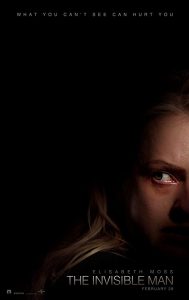 Then, on Friday night, I went to see another movie. Woo, movies!
Then, on Friday night, I went to see another movie. Woo, movies!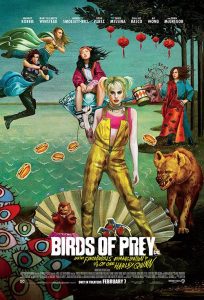 So, I did it! I got the Alamo Season Pass thingy, which this is not a commercial for, but one free movie a day is kind of great? I have to go twice a month to not lose money on the deal, and I want to go a lot more than that, although I think there’s a tiny human hoping to thwart my plans. …who will probably succeed. But for now, salad days[1]!
So, I did it! I got the Alamo Season Pass thingy, which this is not a commercial for, but one free movie a day is kind of great? I have to go twice a month to not lose money on the deal, and I want to go a lot more than that, although I think there’s a tiny human hoping to thwart my plans. …who will probably succeed. But for now, salad days[1]!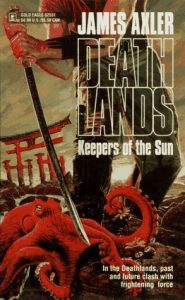 This week in the Deathlands, our heroes… are not in the Deathlands, actually. See, for the past three to five books, there have been hints of circa 17th C samurai that have been using the same teleportation gateways that our band of semi-heroes have been using to travel around the post-apocalyptic remains of what was once the United States. (So, y’know, near future sci-fi.) All of which to say, this time they come out in Japan!
This week in the Deathlands, our heroes… are not in the Deathlands, actually. See, for the past three to five books, there have been hints of circa 17th C samurai that have been using the same teleportation gateways that our band of semi-heroes have been using to travel around the post-apocalyptic remains of what was once the United States. (So, y’know, near future sci-fi.) All of which to say, this time they come out in Japan! If you’re like me[1], when you saw the preview’s for Blumhouse’s
If you’re like me[1], when you saw the preview’s for Blumhouse’s 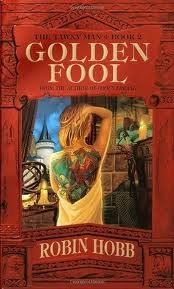 I have really a lot of thoughts about
I have really a lot of thoughts about 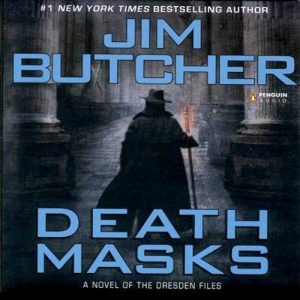 So, uh, massive spoilers for not so much this book but for the entire series through Peace Talks, which is not yet published as of this review. Don’t read farther unless you don’t mind.
So, uh, massive spoilers for not so much this book but for the entire series through Peace Talks, which is not yet published as of this review. Don’t read farther unless you don’t mind.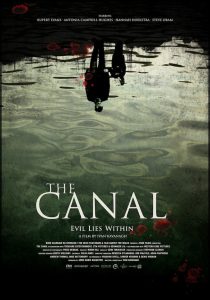 When I started thinking last night about my review of
When I started thinking last night about my review of 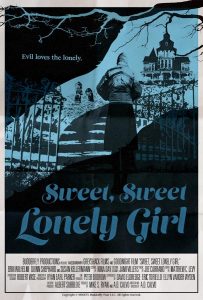 I scrolled to the tail end of my watch list on Shudder last night, because it’s been a minute or three since I watched anything there that wasn’t hosted by Joe Bob Briggs. The movie at the end was conveniently short (since I was halfway thinking about going to sleep early instead) and in English (since I wanted to get my outstanding review handled before the plot got very busy[1]), so perfect placement, and thusly did I watch
I scrolled to the tail end of my watch list on Shudder last night, because it’s been a minute or three since I watched anything there that wasn’t hosted by Joe Bob Briggs. The movie at the end was conveniently short (since I was halfway thinking about going to sleep early instead) and in English (since I wanted to get my outstanding review handled before the plot got very busy[1]), so perfect placement, and thusly did I watch 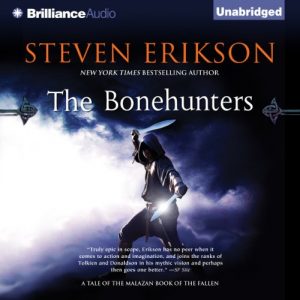 Jesus, I read
Jesus, I read